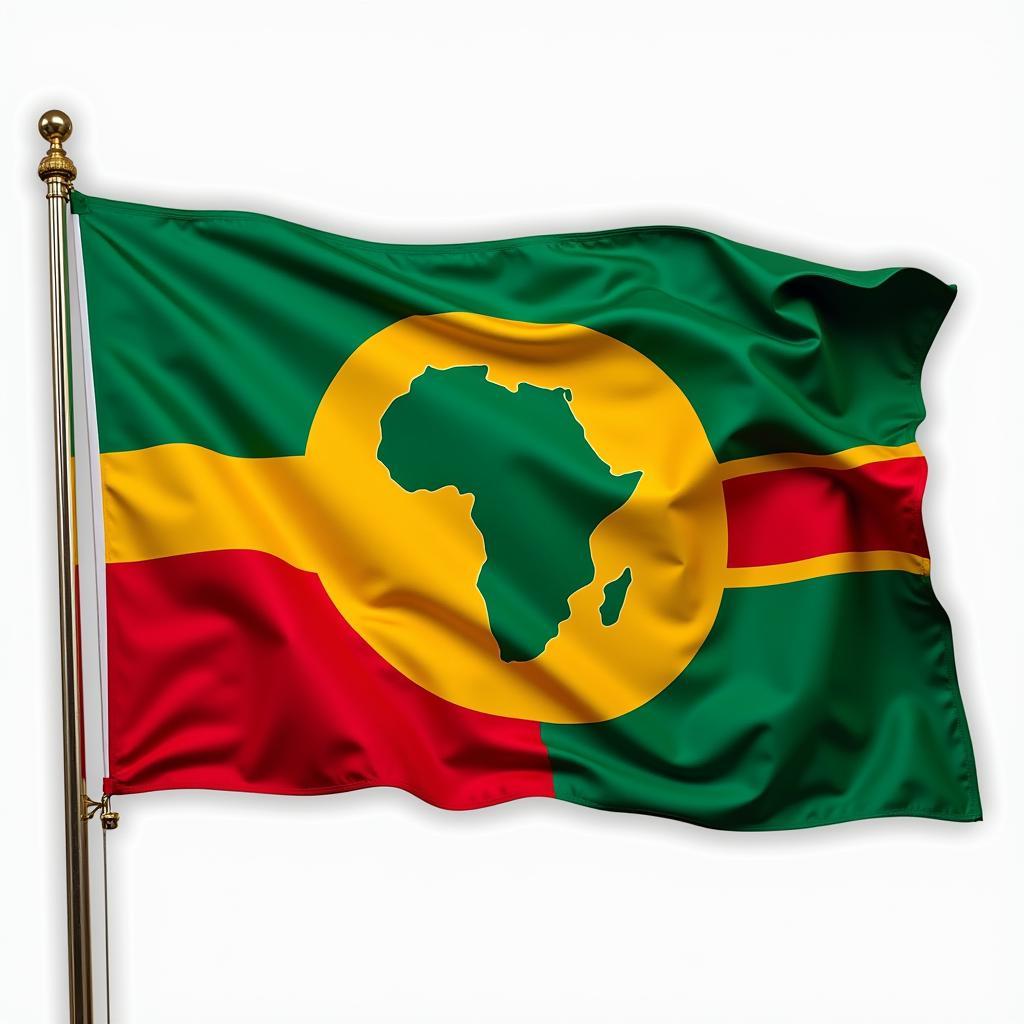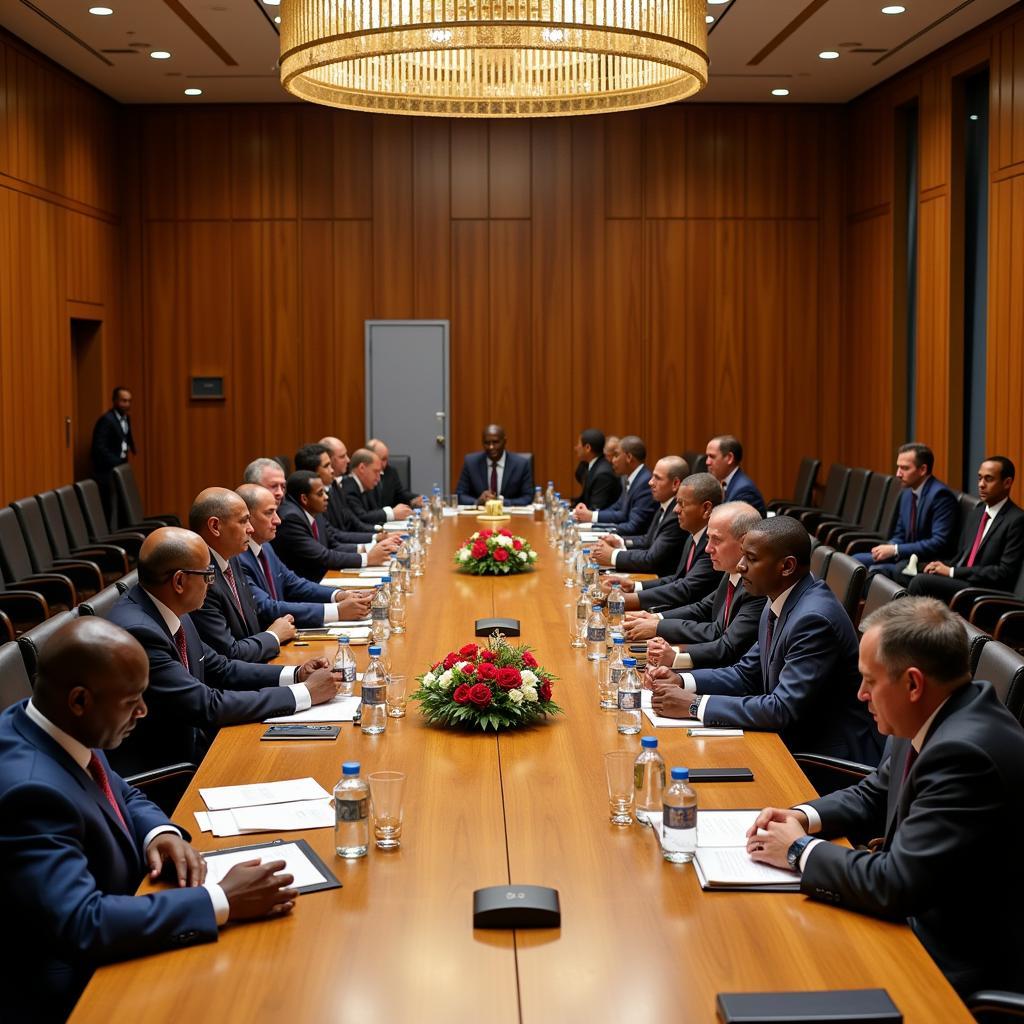What is the African Union?
The African Union (AU) is a continental organization consisting of 55 member states located on the mainland of the African continent. Established on May 26, 2001, in Addis Ababa, Ethiopia, the AU replaced the Organization of African Unity (OAU) with the aim of accelerating the political and socio-economic integration of the continent. It strives to promote unity, solidarity, and cooperation among African states and to address the continent’s multifaceted challenges. The AU represents a vital platform for African countries to collectively address issues and forge a shared future. Learn more about the number of countries in the African Union at no of countries in african union.
Understanding the African Union’s Purpose and Structure
The African Union’s core mission is to drive sustainable development and foster peace and security across Africa. It aims to achieve these goals by promoting democratic governance, human rights, and the rule of law. The AU plays a significant role in mediating conflicts, coordinating humanitarian responses, and advocating for African interests on the global stage.
Key Objectives of the African Union
- Achieve greater unity and solidarity between African countries and the people of Africa.
- Defend the sovereignty, territorial integrity, and independence of its Member States.
- Accelerate the political and socio-economic integration of the continent.
- Promote and defend African common positions on issues of interest to the continent and its peoples.
- Encourage international cooperation, taking due account of the Charter of the United Nations and the Universal Declaration of Human Rights.
- Promote peace, security, and stability on the continent.
- Promote democratic principles and institutions, popular participation, and good governance.
- Promote sustainable development at the economic, social, and cultural levels as well as the integration of African economies.
- Promote cooperation in all fields of human activity to raise the living standards of African peoples.
- Coordinate and harmonize the policies between existing and future regional economic communities for the gradual attainment of the objectives of the Union.
- Advance the development of the continent by fostering research in all fields, in particular in science and technology.
- Work with relevant international partners in the eradication of preventable diseases and in promoting good health on the continent.
Organizational Structure of the African Union
The AU is structured with various organs, each playing a specific role in achieving its objectives. The Assembly of the African Union, composed of Heads of State and Government, is the supreme organ of the AU. The Executive Council, comprising Ministers of Foreign Affairs, implements the Assembly’s decisions. The AU Commission acts as the secretariat and administrative arm of the Union. The Peace and Security Council is responsible for maintaining peace and security. You can find out more about the 33rd African Union Summit in Niamey 2019 by visiting 33 african union summit niamey 2019.
The Evolution of the African Union: From OAU to AU
The African Union emerged from the Organization of African Unity (OAU), which was founded in 1963. The OAU played a crucial role in the liberation of African countries from colonial rule. However, its effectiveness in addressing post-independence challenges, such as poverty, conflict, and governance issues, was limited. The formation of the African Union marked a shift towards a more proactive and integrated approach to continental development. The date the African Union was formed is detailed further in when was the african union formed.
 African Union Flag: A Symbol of Unity and Cooperation
African Union Flag: A Symbol of Unity and Cooperation
Why was the OAU replaced by the AU?
The transformation from the OAU to the AU was driven by a desire to move beyond the liberation struggles of the past and focus on contemporary challenges. The AU’s mandate includes intervention in member states in cases of genocide, crimes against humanity, and war crimes, a power the OAU did not possess. This reflects a greater emphasis on promoting human rights, good governance, and democratic principles within African countries.
“The African Union represents a significant step forward in the journey towards a united and prosperous Africa,” says Dr. Anika Mutibwa, a renowned historian specializing in African political history. “It provides a framework for collective action and a platform for African voices to be heard on the global stage.”
The African Union’s Impact and Challenges
The African Union has made notable strides in various areas, including peace and security, economic development, and health. Its interventions in conflict zones, such as Somalia and Sudan, have contributed to stabilizing these regions. The AU has also launched initiatives to promote intra-African trade and boost economic growth.
Challenges Faced by the African Union
Despite its achievements, the AU continues to face significant challenges. These include limited resources, internal conflicts within member states, and the need to strengthen its institutions. The AU’s success depends on the commitment and cooperation of its member states and the support of the international community. You can learn more about how many countries are in the African Union by visiting how many countries in african union. Further information about the 32nd African Union Summit can be found at 32nd african union summit 2019.
 African Union Summit: Leaders Meeting to Discuss Continental Issues
African Union Summit: Leaders Meeting to Discuss Continental Issues
“The AU’s effectiveness relies heavily on the active participation and collaboration of its member states,” notes Professor Kwame Nkrumah, a leading political analyst specializing in African governance. “Addressing the complex challenges facing the continent requires a united front and a shared vision for the future.”
Conclusion
The African Union represents a vital force for positive change in Africa. It embodies the aspirations of African people for unity, peace, and prosperity. While the AU faces significant challenges, its commitment to addressing these issues and its ongoing efforts to strengthen continental integration offer hope for a brighter future for Africa. The African Union remains crucial in the ongoing development of the continent.
FAQ
-
What is the main goal of the African Union?
- The AU’s primary goal is to promote unity, solidarity, and cooperation amongst African states to tackle the continent’s challenges.
-
When was the African Union formed?
- The AU was established on May 26, 2001.
-
Where is the headquarters of the African Union located?
- The AU’s headquarters are in Addis Ababa, Ethiopia.
-
How many member states are in the African Union?
- The African Union comprises 55 member states.
-
What did the African Union replace?
- The AU replaced the Organization of African Unity (OAU).
-
What is the role of the Peace and Security Council?
- The Peace and Security Council focuses on maintaining peace and security within the continent.
-
How does the AU promote economic development?
- The AU initiates programs to foster intra-African trade and stimulate economic growth.
Other Questions You Might Have About the African Union
- What is the role of the African Union Commission?
- How does the AU address human rights issues?
- What are the AU’s key achievements in promoting peace and security?
- What are the major challenges facing the African Union?
- How does the AU interact with the international community?
Explore More About Africa on Our Website
- The Rich History of African Art and Music
- Exploring the Diverse Cultures of Africa
- The Impact of Climate Change on Africa
- Investment Opportunities in Africa
For further assistance, please contact us:
Phone: +255768904061
Email: [email protected]
Address: Mbarali DC Mawindi, Kangaga, Tanzania.
Our customer service team is available 24/7.
